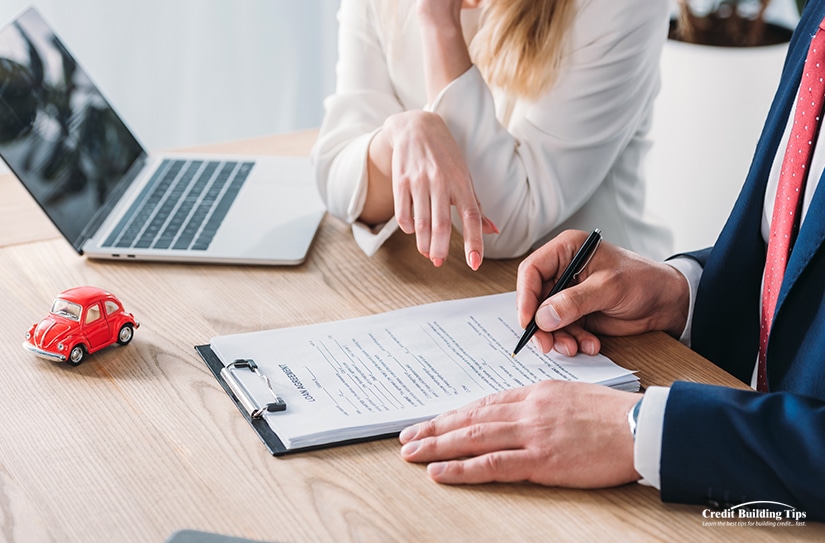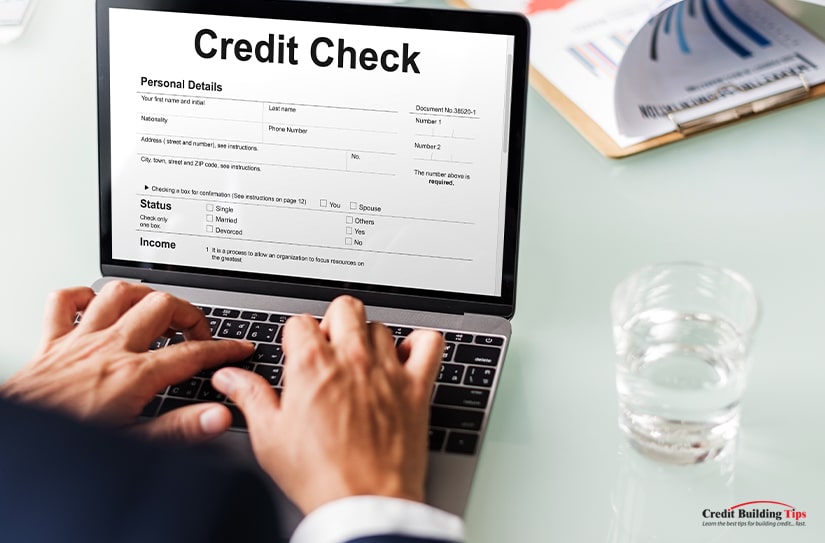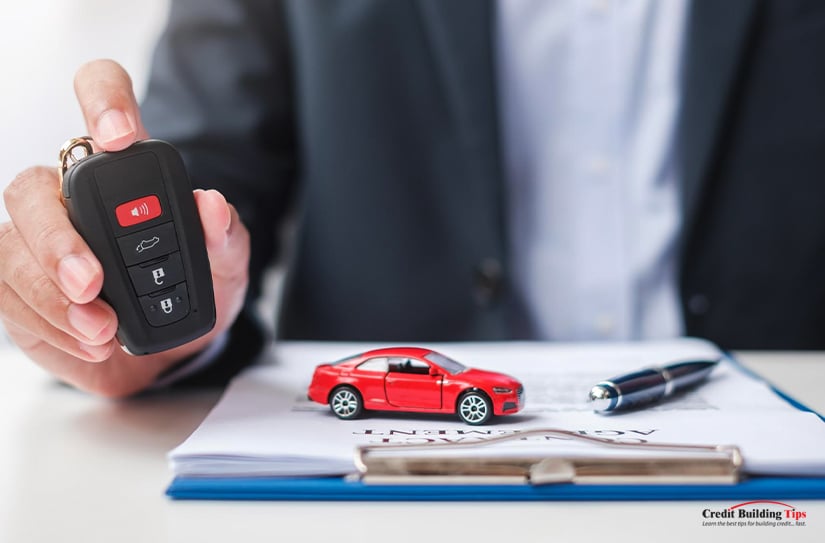In our modern world, having access to a car is near-essential. Urban sprawl, poor public transportation, inaccessible city design, and other factors all come into play to make cars a requirement for participation in society. Regardless of your feelings on the matter, this is the reality of our modern way of life.
Whether to buy or lease a car is one of the most important decisions you'll make, and it has repercussions beyond just your monthly payments. It can even impact your credit score. The question is, is it good or bad, or both? Can it help you build a score, or can it hurt to lease?
Let's dig in.
Your credit score is a numeric indicator of your financial reliability. It is used in many different situations where large amounts of money or assets are on the line. Much like when you want to find an apartment to rent, your credit score can impact your ability to obtain a vehicle.
 Having bad credit can impact your ability to qualify for a car lease, affecting your ability to be eligible for a car loan. Despite the outward similarity – approval for money for a vehicle – credit can impact your ability to qualify differently.
Having bad credit can impact your ability to qualify for a car lease, affecting your ability to be eligible for a car loan. Despite the outward similarity – approval for money for a vehicle – credit can impact your ability to qualify differently.There are two significant differences between leasing and buying that mean your credit score has a different impact.

The first is the source. You're making a deal with a car dealership when leasing a car. If you default, the company leasing you the car is at risk, who has to repossess the vehicle to recoup their losses, and who has to collect payments regularly. When buying a car, you're typically working with a bank to get a loan to pay for the car, at which point the dealership has no further hand in it, and the deal is between you and your bank.
Banks are more flexible with credit than dealers because they tend to have better arrays of safety nets in place and more options for handling financial issues. Dealerships are much smaller entities.
The second difference is the collateral. When you apply for a car loan and use that loan to buy the car, the car becomes collateral. You're paying towards the loan, which the bank technically owns until you pay it off and they send you the paperwork. With a lease, the dealership owns the vehicle, and you're just granted temporary use of it.
All of this means that leases tend to have higher standards for credit scores than loans. Most auto dealerships will only lease a vehicle to someone with a credit score of 620 or above, and many prefer a score of over 700.
An exception is the agencies that allow for lease transfers. People who want to get out of a lease can "sell" the lease to you; you take on the lease for the remainder of its duration, picking up responsibility. This option can be a good choice when credit is exceptionally poor or non-existent.
Both leases and loans have variable terms, and the lower your credit score, the worse the conditions will be for you, primarily in the form of an interest rate for loans and monthly payments for leases. A bad credit score means you're less reliable financially, so a dealership will want to get the most out of you that they can if you default.
You may be able to qualify for a loan to buy, but the terms may not be in your favor. In practice, what this means is that if you have bad credit, you likely won't even be offered the option to lease. Even still, it's better than nothing.
However, all of this is about your credit score before you buy or lease. The question is, though, what happens to your credit score after you sign the paperwork?
Your credit score is a single number calculated based on several factors. The five elements, and their weight in the total calculation, are:
 The single most significant factor influencing your credit score is establishing a history of paying off your debts.
The single most significant factor influencing your credit score is establishing a history of paying off your debts.It doesn't matter if it's a credit card you pay off fully every month, a loan you pay the minimum towards each month, or a lease you pay regularly; the act of making regular payments, on time, with no late payments or defaults, is the critical part.

When you sign a lease for a car, you're signing up to make regular payments. Making those regular payments can benefit your credit score – if the dealership reports leases to the credit reporting bureaus. Most dealerships will make those reports, but occasionally one may not. Your credit score is only based on what is reported, so if your payments aren't being reported, they won't do you any good.
The general exception is rent-to-own businesses, similar to but distinct from leases. Rent-to-own agencies often don't report to credit bureaus because they're self-interested and specifically target people with poor credit. Those credit scores don't improve by not reporting, so those customers are forced to use their limited options. Cynical, predatory, but legal.
If you can get one, a lease for a vehicle can help build your credit score by establishing a reported history of regular payments. It can also add to your credit mix and be part of new credit, so it has more impact than you might expect.
Buying a car is similar to any other loan. Qualifying for a loan has a relatively low bar in terms of credit score, but the better your credit score, the better the loan terms.

The dealership doesn't necessarily care about your credit score unless they work with their financing process. If you come with a cheque in hand, money is money, and you'll get your car. You have to deal with a financial institution to get the loan, but once you have it, the vehicle is yours.
 A car loan is a loan and, as such, impacts your credit. Opening a new loan, making regular payments on the vehicle, and maintaining a reasonable debt-to-income ratio benefit your credit score.
A car loan is a loan and, as such, impacts your credit. Opening a new loan, making regular payments on the vehicle, and maintaining a reasonable debt-to-income ratio benefit your credit score.The only way buying a car will hurt your credit is:
Opening a new loan account can temporarily hurt your credit, but your credit will grow as long as you maintain making payments on time.
When a lease ends, you give the car back to the dealership, and the relationship ends. At least, that's the way it works on paper.

In reality, most dealerships will offer you three options.
When a lease ends, and a new one begins, it may not even be reported as a new lease and will no further impact your credit score. If you choose to buy the car or walk away, the cancellation of the lease may hurt your credit score a small amount, temporarily.
 Your credit score can take a minor hit because you're closing a line of credit – even if it was a financial relationship you were successfully paying off – removes one line from your credit mix and number of accounts.
Your credit score can take a minor hit because you're closing a line of credit – even if it was a financial relationship you were successfully paying off – removes one line from your credit mix and number of accounts.However, this credit drop is temporary; in most cases, the credit bureaus are smart enough to recognize that closing the account is beneficial, and your score will return to where it was or higher. This phenomenon is, after all, why your credit mix and number of accounts are such small percentages of your overall score.
The one possible way a lease ending could hurt your credit is if you had additional closing fees, like wear and tear charges, and you don't pay those right away. In that case, it becomes like any other debt you default on and hurts your score.
Like ending a lease, ending a loan closes a credit account and can temporarily cause your credit score to go down. And, much like a lease, when the bureaus recognize that it's a beneficial action, your score will return to its previous heights.

Closing a loan can be more impactful if you have few or no other lines of credit and aren't making any other regular payments that the dealerships would report to the credit bureaus. However, even still, your credit score is likely to be higher than before opening the loan, mainly if you had bad credit and made your payments on time the whole way through.
Whether or not a lease or a loan is better depends on a few factors.
The first is if you have bad credit. With bad credit, anything that improves it can have a significant impact. More importantly, you want short-term solutions rather than long-term solutions because a completed contract is valuable to your credit score.
A car loan usually starts at two years and may stretch as far as seven. That means it can be as much as seven years before you get a completed contract on your record. Of course, regular payments during that time are beneficial, too.

On the other hand, leases are often 1-4 years. If you opt for shorter contracts, you can have more closed contracts and thus a better credit score.
In both cases, however, the history of making regular monthly payments is much more impactful and roughly equivalent between methods.
The other factor is the value of the debt you take on.
You're taking on debt for the car's total value with a car loan. Taking a $30,000 loan for a vehicle means taking on $30,000 in debt - a significant hit to your debt-to-income ratio.
With a lease, the total amount of the debt is only reported when the lease ends and is only the amount you paid. A $30,000 car, after a three-year lease, might only be worth $20,000; your lease burden will be reported to be the $10,000 paid towards it in that time. Your debt-to-income ratio looks better, so leasing has a better impact.
From a pure credit standpoint, leasing may be the better option. However, there are numerous caveats to this.
Then there are the other considerations. With a lease, you are often restricted on the number of miles you can drive in a month. You may not have steep maintenance bills, as the dealership may cover maintenance, unlike with a vehicle you've purchased.

However, terms can vary, so make sure you know what you're getting into.
In the end, the choice may not be yours to make.
Are you thinking of leasing or purchasing a vehicle, or do you already lease a vehicle? Do you have any questions for us about your options? Please share with us in the comments below! It will help other users out, and we would be happy to give you advice on your current situation.